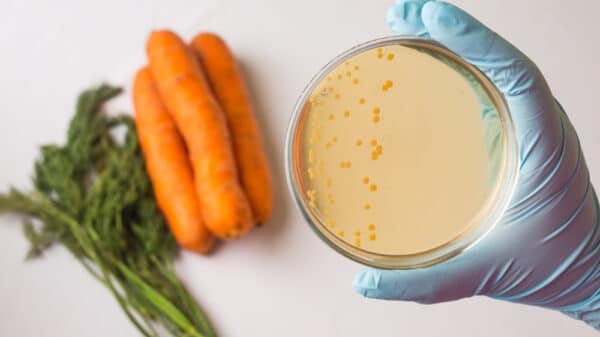Menstrual bleeding is something that many people experience, yet it can significantly impact various aspects of daily life, including physical comfort, emotional health, and overall well-being. When we talk about heavy menstrual bleeding, also known as menorrhagia, it refers to periods that are abnormally heavy or prolonged. If you’re nodding along, wondering how to manage this tricky aspect of womanhood, you’re in the right place. This comprehensive guide aims to provide practical steps and insights to help you ease the burden of menorrhagia and uplift your overall period experience.
What Are Some Common Causes of Heavy Menstrual Bleeding?
Heavy menstrual bleeding can stem from several factors, and it’s important to recognize these potential culprits. Hormonal imbalances—especially fluctuations in estrogen and progesterone—can lead to irregularities in your menstrual cycle, including heavy flows. Noncancerous growths in the uterine lining, commonly referred to as uterine fibroids and polyps, can also contribute to this issue. Other potential causes may include endometriosis, where tissue similar to the uterine lining grows outside the uterus, thyroid disorders which can disrupt hormone levels, and even certain medications that might cause increased bleeding. Understanding these factors can empower you to have more informed conversations with your healthcare provider.
Optimize Your Diet
It’s no secret that what we put into our bodies plays a crucial role in how we feel. If you experience heavy menstrual bleeding, it’s wise to pay attention to your diet. Heavy bleeding can result in significant iron loss, leading to fatigue and weakness. Incorporate plenty of iron-rich foods into your meals—think spinach, legumes, and lean meats. In addition, foods rich in antioxidants, like berries, fatty fish, and nuts, help reduce inflammation and support menstrual health. Let’s not forget about caffeine and alcohol—while they may provide a moment of relief or escape, they can actually worsen menstrual symptoms. Reducing your intake of these substances could lead to lighter periods and a more enjoyable cycle.
How Maintaining a Healthy Weight and Staying Hydrated Plays a Role
Your body is unique, and maintaining a healthy weight can be crucial when it comes to hormonal balance. Whether you find yourself underweight or overweight, both can disrupt your cycle. Working towards a balanced weight through regular exercise and a varied diet can help achieve more stable menstrual flow. Additionally, don’t underestimate the power of hydration. Drinking enough water not only supports your overall health but can help alleviate feelings of bloating and discomfort during your period. Aim for at least eight glasses a day to keep your body in the best shape possible—the results might surprise you!
Non-Hormonal Medications and Surgical Options
When lifestyle changes alone won’t cut it, it may be time to explore medical options. Talk to your healthcare provider about medications that can help manage heavy bleeding. For instance, tranexamic acid is known to reduce menstrual flow by promoting blood clotting. On the other hand, desmopressin can assist with bleeding disorders and could be effective for some types of excessive bleeding. If medication isn’t the answer, there are surgical procedures like endometrial ablation, which destroys the uterine lining to minimize or even eliminate menstrual bleeding. Uterine fibroid embolization is another option that shrinks fibroids, resulting in less heavy bleeding. Keep communication open with your medical provider to find a solution that suits your individual needs.
Lifestyle Modifications, Supplements, and Vitamins
Have you noticed that your stress levels rise during your cycle? You’re not alone! Regular physical activity can help balance hormones and potentially ease menstrual symptoms. Gentle exercises like walking, yoga, and swimming might just become your new best friends during that time of the month. Stress management is equally vital—consider trying meditation, deep breathing exercises, or mindfulness practices as ways to stay grounded. And don’t underestimate the importance of sleep; aim for 7 to 8 hours of quality shut-eye each night to support your hormonal balance.
As for supplements, some might benefit your menstrual health. Vitamin C is fantastic for enhancing iron absorption, while vitamin B6 can help regulate hormones and ease PMS symptoms. Magnesium is another powerful ally, known for relieving cramps and supporting reproductive health. Always consult with your healthcare provider before adding new supplements to ensure they’re right for you.
How Do Natural Panty Liners Play a Role in Less Bleeding in Periods?
Let’s talk comfort. Many traditional panty liners contain fragrances, dyes, and other chemicals that can irritate your sensitive skin and make an already uncomfortable time even harder to manage. Natural panty liners, however, typically forgo these irritating additives, helping you feel more at ease during your period. Feeling comfortable and confident during your cycle can dramatically influence how you experience those days. If a natural panty liner helps you feel less aware of discomfort, that’s a step in the right direction toward a more positive period experience.
What Are Some Alternative Therapies?
Perhaps you’re on the hunt for something outside the box? Acupuncture has shown promise for some individuals looking to balance hormones and improve menstrual flow. By stimulating specific points on your body, you may find some relief during difficult periods—just be sure to consult with a licensed acupuncturist who can guide you in this approach. Additionally, homeopathic remedies can be tailored to fit your unique symptoms and overall health. Remedies like Pulsatilla and Sabina might help manage heavy bleeding, but always consult with a qualified homeopath for customized advice.
Tracking and Monitoring Your Menstrual Cycle
Knowledge is power, especially when it comes to your menstrual cycle. Utilizing apps to track your cycle can help you identify patterns and notice any changes in your bleeding. This information isn’t just useful for your personal awareness; it’s incredibly valuable during medical consultations as well. If you prefer the old-school method, jotting down details in a handwritten diary about your flow, symptoms, and any possible influences can also provide meaningful insights for you and your healthcare provider.
Avoid Blood Thinners and Consult a Healthcare Professional
If you’re taking medications that increase the risk of bleeding, such as aspirin, definitely tread carefully. Always check in with your healthcare provider before introducing any new medications to your routine. If you notice unusually heavy bleeding accompanied by significant pain or any other concerning symptoms, don’t hesitate to seek medical advice. Conditions like fibroids or endometriosis can significantly impact your experience and may require professional intervention.
When to Seek Professional Help?
If heavy bleeding becomes a persistent issue, even after you’ve made dietary or lifestyle changes, or if it is linked with severe pain and fatigue, it’s time to reach out to a healthcare professional. Persistent or worsening symptoms could signal an underlying condition that needs specialized attention.
Transforming your period experience takes a multifaceted approach, including dietary adjustments, lifestyle changes, and possibly medical interventions. By familiarizing yourself with the causes of heavy bleeding and trying out these various strategies, you can begin to take charge of your menstrual health, paving the way toward a more positive and manageable cycle. Remember, you’re not alone in this journey—there are effective ways to improve your quality of life, and every step you take is a step in the right direction.
Image Source: Kmpzzz / Shutterstock

































